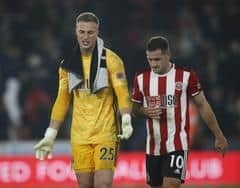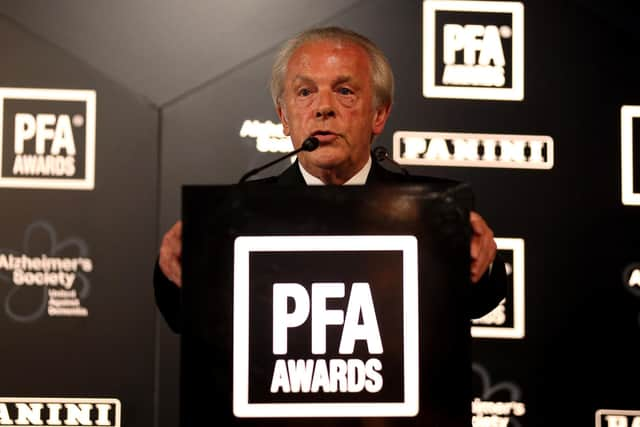Sheffield United's players and their union delegate study a complex set of issues in the great wage debate
and live on Freeview channel 276
Delegates from the PFA and their counterparts at the governing body’s Brunel Building HQ met earlier this week to discuss the imposition of wage deferrals or cuts as the season prepares to enter its fourth week of lockdown.
Moore, the union’s first port of call at Bramall Lane, is believed to have received a detailed breakdown of the issues raised during those talks and is responsible for passing on any concerns his team mates have to the PFA’s negotiators.
Advertisement
Hide AdAdvertisement
Hide AdSeveral leading figures at United, including manager Chris Wilder who has been liaising with the LMA about the matter during the coronavirus crisis, are thought to be sympathetic to the idea of accepting lowering their pay until competition resumes.
Speaking soon after the fixture calendar was halted when Arsenal head coach Mikel Arteta tested positive for the respiratory disease, defender Chris Basham acknowledged it was important for those at the top of the sport to take care of people working further down the pyramid while Enda Stevens, the United wing-back, has contributed towards a fund designed to help League of Ireland players laid off by their clubs. Stevens, who was born in Dublin, started his career with UCD and also represented St Patrick’s Athletic and Shamrock Rovers before moving to England.
“I know a few boys, playing non-league, who receive little pay packets,” Basham said. “They’re obviously worried about those going because they have families to look after and those go towards their income.”
Tensions within the game have risen since it emerged Tottenham Hotspur and Newcastle had placed many staff working in no-footballing roles on furlough while their first team squads continued to be paid 100 per cent of their salaries.
Advertisement
Hide AdAdvertisement
Hide AdAn email circulated to those affected at St James’ Park insisted the measure was necessary to safeguard the club’s future. But like many clubs who have now taken similar steps, it failed to address why lower earners had been targeted before the first team players, who are thought to earn an average of £40,120 a week?


That question needs to be directed at the owners and directors of top-flight clubs rather than the PFA, whose first responsibility is to its members.
Although some have voluntarily accepted cuts and deferrals, others, including at sides like Burnley, who have pledged to continue paying all match and non-match day staff in full until at least the end of the month, remain financially untouched by the enforced hiatus.
Confirming it is not seeking to “block” or prevent any steps being taken, the PFA’s latest statement expressed concern that clubs could attempt to exploit the worker retention scheme by effectively asking the taxpayer to take over their own financial responsibilities.
Advertisement
Hide AdAdvertisement
Hide Ad"Each club’s financial standing will vary, the PFA noted. “We are aware of the public sentiment that the players should pay non-playing staff’s salaries. However, our current position is that – as businesses - if clubs can afford to pay their players and staff, they should.


"The players we have spoken [to] recognise that the non-playing staff are a vital part of their club and they do not want to see club staff furloughed unfairly. Any use of the government’s support schemes without genuine financial need is detrimental to the wider society.
"In instances where clubs have the resources to pay all staff, the benefit of players paying non-playing staff salaries will only serve the business of the club’s shareholders.
FIFPro, the world players’ union, has also warned clubs against adopting a blanket approach, stressing that steps taken by elite level teams “cannot just be translated downwards.”
Advertisement
Hide AdAdvertisement
Hide AdA statement issued on FIFPro’s behalf noted its concern that in several other countries, clubs “have begun to immediately lay off players or unilaterally reduce their salaries,”
In Switzerland, Sion made nine members of their squad redundant when they refused to accept reductions as part of a federal unemployment insurance programme.
United’s players are continuing to train from home after social distancing protocols, introduced by the Government, forced the closure of the Steelphalt Academy.
Seventh in the table and preparing for an FA Cup quarter-final against Arteta’s men when the shutdown was announced, they have been without a match since beating Norwich City at the start of last month.
